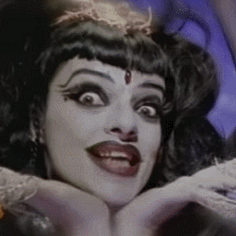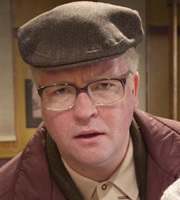- Welcome to Cook'd and Bomb'd.
-
 The new "What Stand Up...
by Tiggles
The new "What Stand Up...
by Tiggles
[Today at 12:31:03 AM] -
 James
by Bentpitch
James
by Bentpitch
[Today at 12:28:40 AM] -
 Threelon Musk: pl3ase lik3...
by Wonderful Butternut
Threelon Musk: pl3ase lik3...
by Wonderful Butternut
[Today at 12:28:13 AM] -
 How long for the ice cream...
by Sebastian Cobb
How long for the ice cream...
by Sebastian Cobb
[Today at 12:21:11 AM] -
 Trans Mania: Graham Linehan...
by DJ Bob Hoskins
Trans Mania: Graham Linehan...
by DJ Bob Hoskins
[Today at 12:16:18 AM] -
 Star Trek: Deep Space Nine...
by Lemming
Star Trek: Deep Space Nine...
by Lemming
[Today at 12:15:40 AM] -
 Richie Sunak - The Decline...
by Bum Flaps
Richie Sunak - The Decline...
by Bum Flaps
[Today at 12:15:11 AM] -
 The second thread of your...
by GazzoftheGreen
The second thread of your...
by GazzoftheGreen
[Today at 12:11:41 AM] -
 Wrasslin' Talk: Punk out
by Mobius
Wrasslin' Talk: Punk out
by Mobius
[Today at 12:10:28 AM] -
 I've decided The Larry Sanders...
by Mobius
I've decided The Larry Sanders...
by Mobius
[Today at 12:09:44 AM]
Members
 Total Members: 17,819
Total Members: 17,819 Latest: Jeth
Latest: Jeth
Stats
 Total Posts: 5,578,417
Total Posts: 5,578,417 Total Topics: 106,671
Total Topics: 106,671 Online Today: 1,086
Online Today: 1,086 Online Ever: 3,311
Online Ever: 3,311- (July 08, 2021, 03:14:41 AM)
Users Online
 Users: 80
Users: 80 Guests: 873
Guests: 873 Total: 953
Total: 953 Adn
Adn Jimmy the Harp
Jimmy the Harp machotrouts
machotrouts JesusAndYourBush
JesusAndYourBush Calistan
Calistan rilk
rilk Ron Maels Moustache
Ron Maels Moustache cosmic-hearse
cosmic-hearse Brian Dunklefun
Brian Dunklefun lankyguy95
lankyguy95 McDead
McDead Bingo Fury
Bingo Fury Wonderful Butternut
Wonderful Butternut Pseudopath
Pseudopath Virgo76
Virgo76 Memorex MP3
Memorex MP3 Tiggles
Tiggles g0m
g0m sprocket
sprocket Cold Meat Platter
Cold Meat Platter checkoutgirl
checkoutgirl Pavlov`s Dog`s Dad`s Dead
Pavlov`s Dog`s Dad`s Dead Gurke and Hare
Gurke and Hare C_Larence
C_Larence Theoretical Dentist
Theoretical Dentist Mx Wrongs
Mx Wrongs Bentpitch
Bentpitch everyplatewebreak
everyplatewebreak thr0b
thr0b Tomsidg
Tomsidg Kankurette
Kankurette benjitz
benjitz steamed hams
steamed hams Jake Thingray
Jake Thingray KaraokeDragon
KaraokeDragon Steven88
Steven88 The Giggling Bean
The Giggling Bean Kim Jong Il
Kim Jong Il tomasrojo
tomasrojo Mr Balowski
Mr Balowski rjd2
rjd2 Severai
Severai jobotic
jobotic Adey
Adey Hugl
Hugl DelurkedToHelp
DelurkedToHelp Elderly Sumo Prophecy
Elderly Sumo Prophecy Rizla
Rizla DJ Bob Hoskins
DJ Bob Hoskins sadman2705
sadman2705 famethrowa
famethrowa AnotherOli
AnotherOli Poobum
Poobum PaulTMA
PaulTMA Blumf
Blumf letsgobrian
letsgobrian Theotherside
Theotherside horseapples!
horseapples! Keebleman
Keebleman Sonny_Jim
Sonny_Jim Ian Drunken Smurf
Ian Drunken Smurf ProvanFan
ProvanFanThe comforting feeling of knowing you've got a giant fuck-off novel to read
Started by ASFTSN, September 28, 2020, 03:09:37 PM
Previous topic - Next topic
User actions

